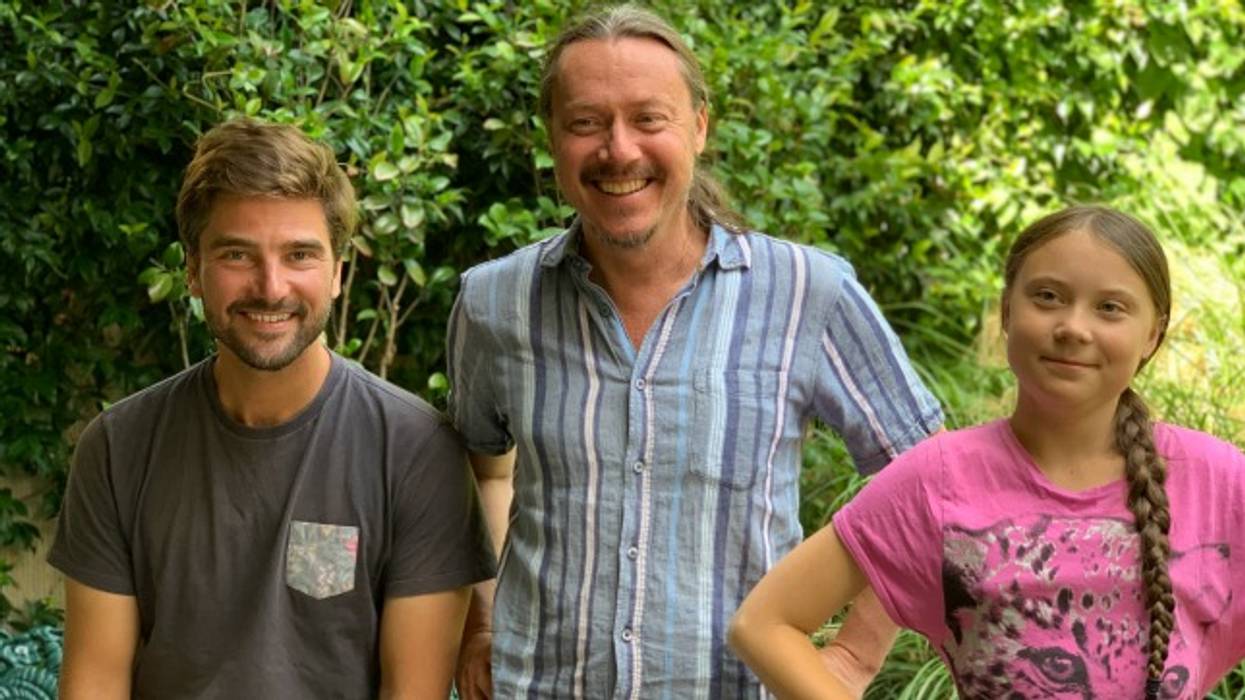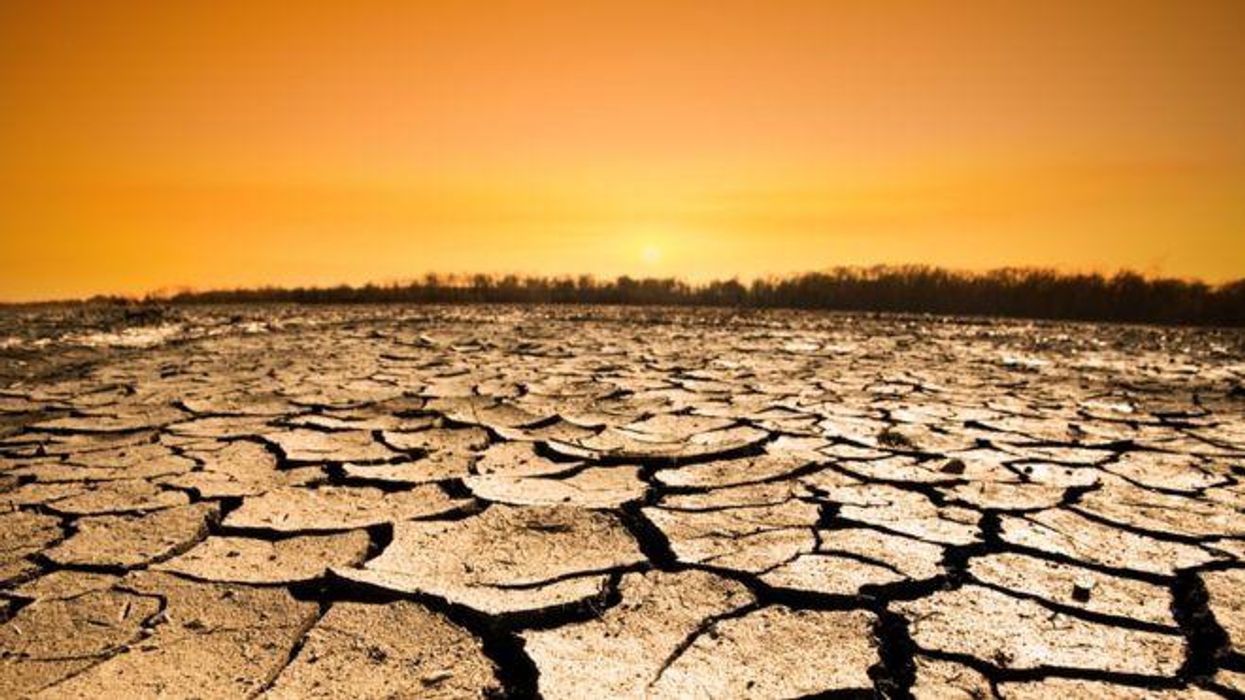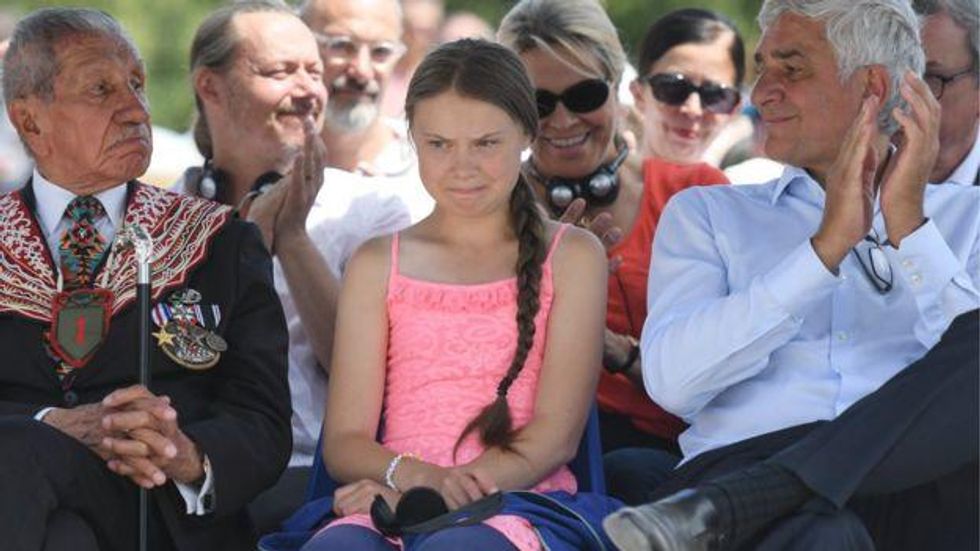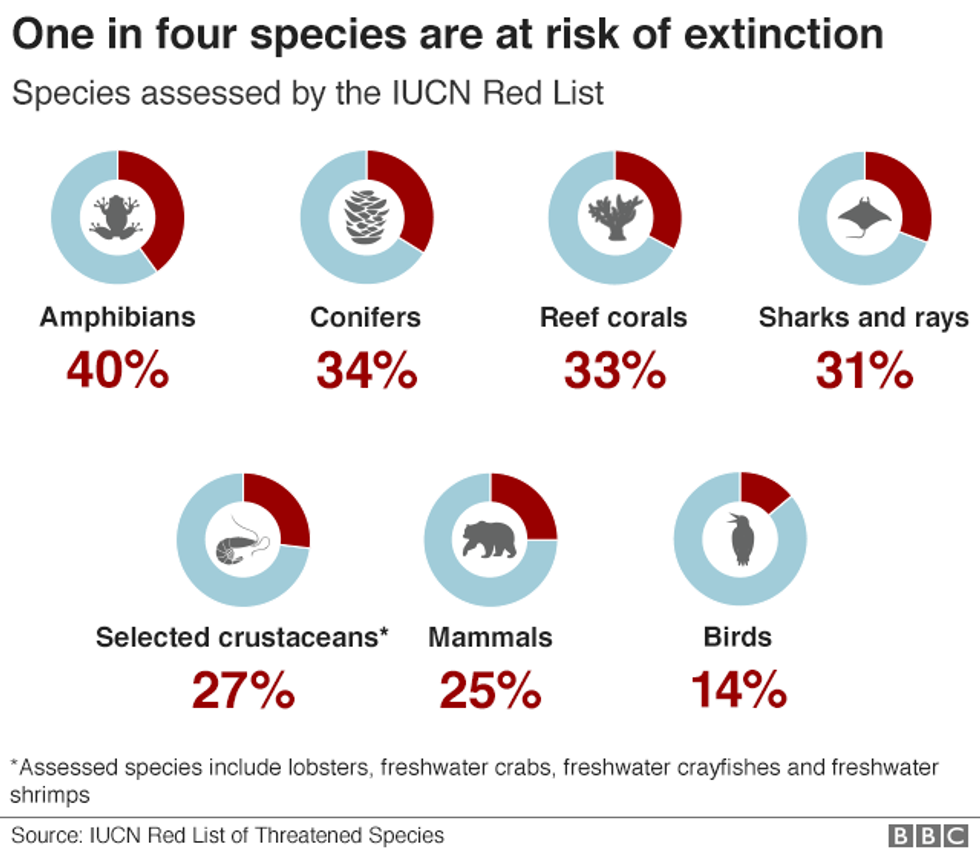Chile Desperto! Chile Has Woken Up! The Rising Fight Against Neo-Liberalism in Chile
Today in Chile the working class and oppressed people are under brutal attack, economically, politically and socially, by the Sebastian Piñera government and imperialist exploitation.
! Chile desperto!
!Pinera, renuncia!
!Pinera ya fue!
!Que se vayan los milicos!
Chile Has Woken Up!
Pinera Resign!
Pinera Has Gone!
Let the "Milicos" leave! ("Milicos" is a derogatory
word for police and military personnel)
These are some the powerful chants that have echoed throughout the streets of cities small and large in Chile during mass protests that began in October 2019. Poor, working and oppressed people and students have united to demand dignity and human rights - in one word, an end to neo-liberalism in Chile.
This movement began following the October 6 announcement by the government of Chile that there would be a 30-peso transit system fare hike. This increase, which amounts to about $0.04 USD, was enough added pressure to an already tight household budget for many Chileans to bring millions of people out into the streets.
"It's not about the 30 pesos. It's about 30 years"
For the first two weeks, protests were organized by high school students who called on people to refuse to pay transit fares. By October 18 the President of Chile, Sebastian Pinera had not responded to the students' demands - and instead declared a State of Emergency and deployed the military and riot police to attack the students.
Despite the extreme repression and curfew, people in Chile continued to demonstrate. Then, on October 21, President Pinera, extended the State of Emergency, declaring, "We are at war against a powerful enemy, who is willing to use violence without any limits." With these words, Pinera displayed outright contempt for the people of Chile, and his true colours as an ally of the U.S. and staunch supporter of neo-liberalism in Chile at the same time. By then, protests which had largely been contained to the capital city of Santiago, spread to other cities. At least 10,500 police and soldiers had been deployed by October 21 (BBC).
Protests against the government and neoliberalism have continued to grow and spread throughout the country and into the most oppressed sectors of society. The Indigenous Mapuche people of Chile, who make up about 10% of the population, have also organized and led protests demanding their self-determination and land rights.
Despite the severe repression, on October 25, 2019, 1.2 million people marched in Santiago, representing diverse sectors of Chilean society including social movements, Indigenous people, women, retired people, unions, students and more. The protests have continued since then, and the repression and cruelty of the Pinera government and his military and police goons has reached a severity not seen in Chile since the bloody Pinochet dictatorship ended over 30 years ago.
As reported by the National Institute of Human Rights (Instituto Nacional de Derechos Humanos - INDH), a nongovernmental organization in Chile, at least 177 people have faced severe eye injuries or lost their vision after being deliberately hit in the face by tear-gas canisters and rubber bullets. The same organization has also investigated possible torture sites, and documented cases of un-uniformed police or military throwing people into car trunks and vans. As of October 30, 2019, at least 19 people have been killed and over 1,200 people have been wounded. INDH has also filed 18 cases of sexual violence, including rape, and 92 cases of torture, against police and soldiers.
Why are People in Chile Protesting?
So, how is it that in the face of so much violence, people in Chile have continued their mass protests? What started with a transit fare increase has led to a revolt against Chile's neoliberal government and institutions - and even demands to change the constitution. As Alan Vicencio, a 25-year-old call-center worker told Time Magazine, "The whole constitution makes me angry, the constitution allowed the privatization of every aspect of our lives and it's being doing it for more than 30 years."
Often hailed as "business friendly" and the prime example of the "success" of a free market system, Chile is the most unequal of the 36 countries in the Organisation for Economic Co-operation and Development (OECD). In 2017, the United Nations released a report "Unequal. Origins, changes and challenges in Chile's social divide," which explained how the richest 0.1% of the people in Chile control 19.5% of the wealth.
Privatization runs rampant in Chile through all sectors of life including water, roads, energy, healthcare and the pension system. Although some education is public, there is a great divide between the public and private school systems.
Behind the repression in Chile is the support of the United States, but also the support of many of their imperialist allies, including the government of Canada.
The minimum wage in Chile is not enough for a dignified life - especially as everything is privatized, making everyday life in Chile very expensive. For example, if someone in Chile made minimum wage the cost of transit to and from work would eat up 21% of their paycheque (NACLA.org).
Protestors in Chile are fighting for their dignity. They are fighting against inequality. They are fighting against police and military brutality. These are all symptoms of neoliberalism, which is the economic policy expression of the agenda of imperialism around the world.
One only must look towards to the United States' relationship with the government of Chile to understand just how Chile has become such a good ally to the U.S. With regard to the violence against protestors, the White House stated that," The United States stands with Chile, an important ally, as it works to peacefully restore national order," and "President Trump denounced foreign efforts to undermine Chilean institutions, democracy, or society."
More broadly, as President Trump put it in a press conference a year ago, "There are so many issues that we have to discuss because Chile and the United States are likeminded countries. We share the most important things, which are values--democracy, human rights, freedom. But Chile is really something special. If you look at what they've done, how far they've come. You look at how well run the country is." This is what is sounds like when a government in Latin America is following the orders of the U.S. government and their financial institutions.
Clearly, behind the repression in Chile is the support of the United States, but also the support of many of their imperialist allies, including the government of Canada. In fact, Prime Minister Trudeau had a phone call with Pinera in the midst of severe police and military repression and didn't say one word to him - as reported by CTV News, "A summary from the Prime Minister's Office of Trudeau's phone call with Pinera made no direct mention of the ongoing turmoil in Chile, a thriving country with which Canada has negotiated a free trade agreement."
This is no surprise given that, as reported by the government of Canada, 14% of Canada's mining assets are in Chile including copper, gold and silver mines. This includes Barrick Gold, which had to shut down a $429 million gold mine earlier this year due to severe human rights and environmental violations.
Both the governments of the U.S. and Canada also want to hold up the repressive Pinera government because having a neo-liberal "success story" and a staunch ally in Chile serves them well in their drive to re-establish imperialist hegemony in Latin America. Having a U.S.-supported government in Chile puts imperialists in a better position for their continued attacks against the sovereign and independent countries of Cuba and Venezuela.
Chile--Target of Imperialist Aggression and Exploitation
The modern history of Chile is a history of colonization, imperialist domination and exploitation. Although Chile won independence from Spain in 1818, it wasn't until 150 years later that the people of Chile had the opportunity to be truly independent from colonial and imperialist rule. In 1970, the people of Chile chose to reverse their history of colonization and exploitation, and elected Salvador Allende, who had a progressive and popular agenda to improve the life and oppose imperialist exploitation of Chile.
However, only three years after his election, in 1973, the United States and their imperialist allies orchestrated a bloody coup d'etat, murdering Allende and installing a bloody military dictatorship. In just the first 5 years of his brutal rule, the U.S-backed dictatorship of General Agosto Pinochet imprisoned and tortured at least 30,000 people and disappeared 3,000 people. A constitution written under the dictatorship, which is the same one that enshrines privatization, is still in place in Chile today.
Reviewing the modern history of Chile also helps to explain the continued determination of the people of Chile to continuing protesting in mass in the streets until their demands are met. Despite some concessions that Pinera has been forced to give, such as the increases to monthly pensions or the minimum wage, a cabinet shuffle, or agreeing not to raise the transit fare, people are not leaving the streets.
As, Vilma Alvarez, a leader of the Jumbo Union (Jumbo is a chain of grocery stores in Chile) explained in an interview with the Argentinian news agency Pagina 12, the concessions that Pinera has offered to the protesters are not enough. They are, "another way to continue transferring money to the financial sectors and not giving any relief to the population," and "The demand is for Pinera to resign and for a Constituent Assembly to be held." The people of Chile have had enough.
Building Solidarity with the People of Chile
Why should working and oppressed people in Canada support the struggle of people in Chile? For one, the people of Chile are facing a criminal and violent repression of their basic human rights. They are being arrested, tortured, raped and killed because they have taken to the streets in the millions to oppose inequality and austerity and to struggle for their basic dignity.
As Isabel Sanchez stated to Aljazeera news on October 26, "We are of the generation that began our lives in the dictatorship, and we had no youth. We lost friends; we saw people slaughtered. We lived with fear, but now the young people have blossomed, they have lost that fear." It is time also for us, as poor, working and oppressed people in Canada and the United States to recognize the courage and struggle of the people of Chile, stand with them, and echo their voices.
Also, as people living in the United States and Canada, we have the added responsibility to stand in solidarity with the people of Chile because the governments of Canada and the U.S. are supporting the brutality and repression of the Pinera government.
Chile Diaspora Supports the Struggle
In the U.S. and Canada, members of the Chilean community and their allies have also taken to the streets to call for human rights for people in Chile and denounce the indiscriminate violence waged against protestors by the Pinera government. There have been solidarity protests organized in major cities across the United States, and in Canada, including in Montreal, Toronto, Calgary, Edmonton, Winnipeg, Vancouver and Victoria. These solidarity actions have not only brought together people from a wide variety of backgrounds and experiences, but also many generations of Chileans - from those that fled during the Pinochet dictatorship, to young people from Chile who are in the Canada and the U.S. to study.
In Vancouver, the Chilean diaspora has come together with others living in Canada in a new group named Van4Chile. Van4Chile has organized protests and public demonstrations in solidarity with the people of Chile, including an energetic protest in front of the CBC in downtown Vancouver on November 2, 2019. At this action, more than 200 people, from all walks of life, came together to demand that the CBC cover the protests in Chile. They also called out the government of Canada's complicity in the repression of people's human and democratic rights in Chile. To get involved and follow the work of Van4Chile find them on Facebook, Instagram and Twitter @Van4Chile.
Don't Boycott Chile
It is also important to say that within the movement in solidarity with the people of Chile, there has been calls for a boycott against Chilean wine or other products produced in Chile. While this call for boycott may have been made with good intentions, the most important action that we, as peace-loving people in Canada and the U.S. can take for the courageous people of Chile is not to boycott them, but to support them. Perhaps, we must think more critically about what boycotting Chilean wine will do for people in Chile.
Today in Chile the working class and oppressed people are under brutal attack, economically, politically and socially, by the Sebastian Pinera government and imperialist exploitation. So, it is possible that a boycott that targets Chile's economy has the potential to damage their movement and to reinforce the austerity which they are already living under. Any damage to the economy of Chile will surely be passed on from Chile's richest families and capitalist class (they have billion dollars to survive) to poor and working people in Chile, increasing the austerity, pressure and inequality that they face. And Chile is not only a wine producer! Do we want also to boycott the mining, metal, mineral companies whose products amount to 60%, or $40 billion, of all of Chile's exports, making up 20 percent of Chile's GDP? The wine industry exports only $2 billion of the $70-77 billion of total exports from Chile.
That being said, do we really want the wine industry in Chile go bankrupt? Who is benefiting from that? Working people? Of course not. Do we want workers and people who work in wine industry to lose their jobs, or do we want to help the capitalist class to find excuses to lay-off workers and impose downsizing and overtime? Aren't these the very policies of neoliberalism that Chilean people, and we, are opposing? Isn't this shooting ourselves in the foot?
Furthermore, it is also important to consider the alternative--if people around the world are asked to boycott Chilean wine because the government of Chile is reactionary--is drinking wine from the U.S., Canada, France, Spain, England, Australia, Italy, or Germany, who are responsible for the slaughter of tens of millions of people around the world (including Chile's coup September 11,1973), really any better? The difference is that Chile is an oppressed country, a third-world country. Chile is not an imperialist country with vast finances and industrial resources. Chile as a country struggles within the world market which is overwhelmingly dominated by imperialist countries and their corporations (including wine companies).
Applying any given tactic to any struggle could be very damaging to the struggle itself if it is not well thought out. In the history of the struggle for a better world, a boycott movement has never been the most effective way to build solidarity. The only effective boycott movement was one that was demanded by the people within the country being boycotted, and this was the successful boycott movement against apartheid South Africa.
If we can take all the energy that could go into a boycott, and instead use it to raise sympathy and solidarity with Chilean people in Canada and the U.S. through street actions, petitioning, educational events, and more, our impact will be much greater.
As poor, working and oppressed people in Canada/U.S., and around the world we must raise the question of human rights, torture, rape, execution, repression and yes, neoliberalism and austerity measures in Chile. We need to expose the atrocities of Pinera, and the complicity of governments like the U.S. and Canada in this brutality.
Sebastian Pinera must go!





